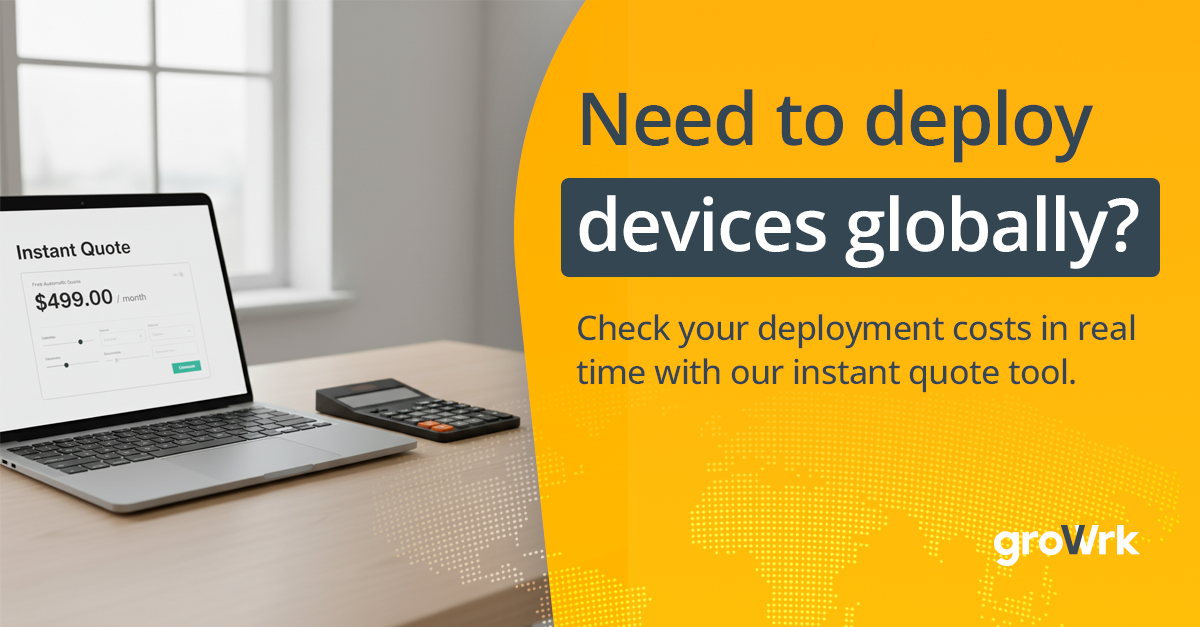How to send IT equipment to the UAE
Are you looking to send IT equipment to remote teams in the UAE? At GroWrk, we specialize in simplifying cross-border IT asset management, ensuring seamless delivery of laptops, servers, and other essential devices to the UAE. From logistics to customs clearance and regulatory compliance, we handle everything so you can focus on business growth.
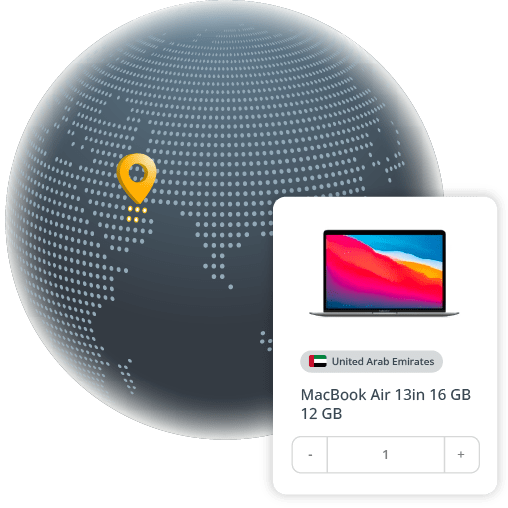
At a glance
The UAE has established itself as a leading global IT hub, recognized for its state-of-the-art infrastructure, strategic investments, and innovative policies. The country’s unwavering commitment to digital transformation has fostered a thriving environment for technological innovation and business growth.
|
CURRENCY UAE Dirham (AED) |
OFFICIAL LANGUAGE Arabic English is widely spoken |
TIME ZONE GMT +04:00 Gulf Standard Time (GST) |
|
CUSTOMS DUTY ON ELECTRONICS 0% Value Added Tax (VAT) of 5% applies |
SHIPPING LEAD TIME 3–7 days (depending on shipping method and customs clearance) |
IT OUTSOURCING MARKET As of 2024, the market is projected to reach a revenue of US$1.51 billion, with an anticipated compound annual growth rate (CAGR) of 9.11% from 2025 to 2029, potentially reaching US$2.14 billion by 2029. |
Overview of IT operations in the UAE

Driving digital transformation: The UAE government’s ambitious initiatives, such as the Dubai Smart City and Abu Dhabi's advanced technology ecosystems, have laid the foundation for significant digital transformation across multiple sectors. Focus areas include fintech, blockchain, artificial intelligence, and automation, with strong collaboration between government bodies and private companies to accelerate the adoption of emerging technologies and foster an agile, forward-thinking economy.
Advanced IT infrastructure: The UAE boasts a state-of-the-art IT infrastructure, including world-class connectivity with high-speed broadband, 5G networks, and cutting-edge data centres. The nation's strategic investments in secure, scalable infrastructure have positioned it as a regional leader, attracting multinational corporations and tech firms looking to expand their operations in the Middle East.
Commitment to sustainability: Sustainability plays a pivotal role in the UAE’s digital strategy, with a national focus on energy-efficient IT practices and green data centres. The government's commitment to sustainable growth aligns with global environmental, social, and governance (ESG) objectives, making the UAE an attractive destination for companies balancing technological advancement with environmental responsibility.
Skilled and future-ready workforce: The UAE’s workforce is highly regarded for its technical expertise, adaptability, and strong digital capabilities. With initiatives like the National Program for Coders and various tech-focused training programs, the country continues to invest in upskilling its workforce in areas such as AI, cybersecurity, cloud computing, and software development, ensuring a robust pipeline of talent to meet the demands of the evolving digital economy.
Pro-business environment: The UAE offers a stable, transparent, and pro-business environment, supported by competitive tax policies, robust intellectual property protection, and regulations that facilitate digital trade. With strategic access to markets in the Middle East, Africa, and Asia, the UAE stands as an ideal destination for companies seeking innovation, growth, and regional integration.
Robust cybersecurity and data protection: Cybersecurity and data governance are critical priorities for the UAE, with comprehensive legislation like the UAE Cybersecurity Law and the Data Protection Law ensuring a secure digital landscape. These frameworks offer businesses strong protections for digital infrastructure and consumer data, providing a trustworthy environment for companies operating in the digital sphere.
A thriving tech ecosystem: From innovation hubs such as Dubai Internet City and Abu Dhabi's Hub71 to its thriving startup ecosystem, the UAE has cultivated an environment conducive to tech enterprises, research institutions, and R&D-driven companies. Continued support from the government and access to a broad investor base make the UAE a magnet for innovation and a prominent player in the global tech arena.
Shipping IT equipment to the UAE: What you need to know
| Customs regulations |
|
| Duties and taxes |
|
| Required documentation |
|
| Customs clearance process |
|
| New vs. Used equipment |
|
| Penalties or fines for non-compliance |
|
Checklist for sending laptops to the UAE
When shipping laptops to the UAE, it’s important to follow a few best practices to ensure the process goes smoothly, and your equipment arrives safely and on time. Here are some helpful shipping tips:
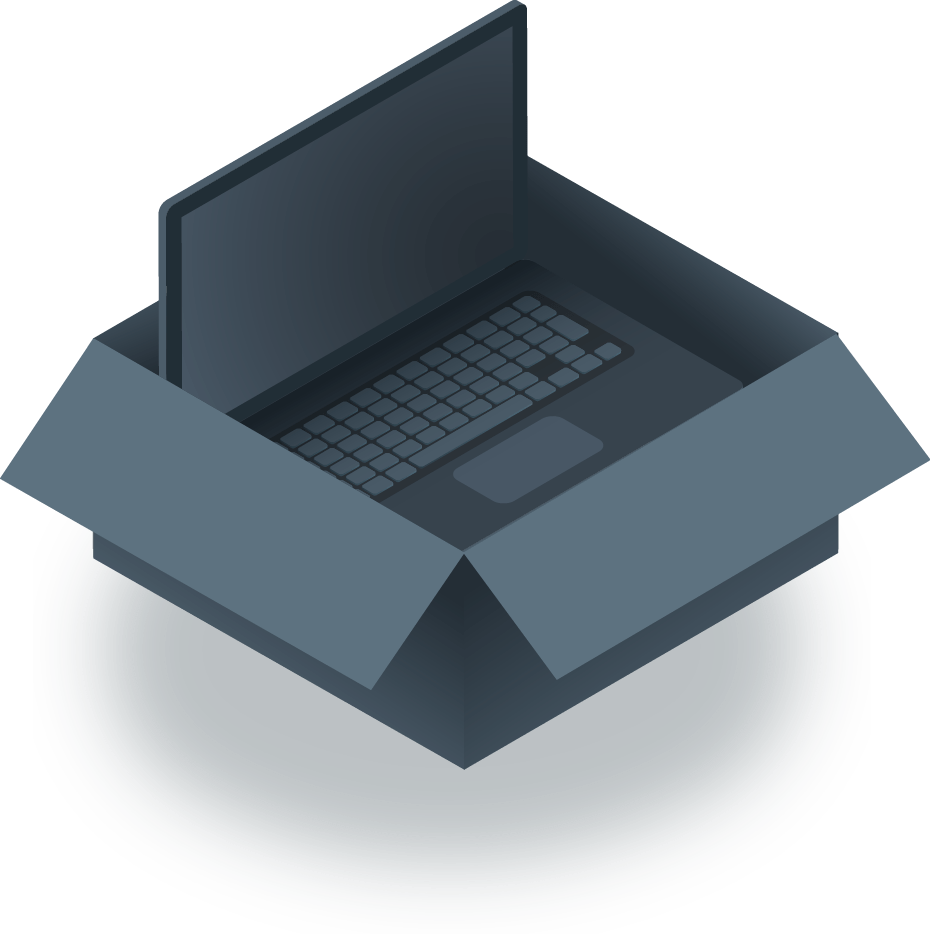
Select trusted couriers: Choose reliable couriers such as GroWrk, DHL, UPS, FedEx, or Emirates Post. These providers offer comprehensive tracking and are experienced with UAE customs procedures, which helps avoid delays and complications.
Check service levels: Select the appropriate shipping option based on urgency. Express shipping (3-7 days) for high-priority deliveries. Standard shipping (7-14 days) for cost-effective options.
Use high-quality packaging: Secure laptops with sturdy, padded boxes and protective materials like bubble wrap, foam inserts, or air cushions to prevent damage during transit.
Disassemble where possible: If shipping accessories like chargers, docking stations, or monitors, package them separately to prevent damage. Remove detachable components if applicable.
Label clearly: Ensure the recipient’s name, address, and contact details are correctly labeled. Mark the package as "fragile" to encourage careful handling.
Accurate product descriptions: On the commercial invoice, provide a detailed and accurate description of the laptop, including its brand, model, and serial number. Inaccurate descriptions may cause customs delays.
Value declaration: Declare the correct value of the laptop to avoid under- or over-declaring, which could lead to customs inspections or fines. The declared value determines any applicable duties and taxes.
Customs declarations: Include the commercial invoice, packing list, and air waybill. For shipments to businesses, the recipient’s TRN (Tax Registration Number) should also be included. Commercial imports may require import permits depending on the quantity and intended use.
Proof of origin: If applicable, attach a certificate of origin if the shipment qualifies for preferential treatment under UAE trade agreements. While not always required, this can help with expedited clearance or reduced duty.
Understand import duties & taxes: Laptops are exempt from import duties in the UAE, but they are subject to 5% VAT, applied to the CIF value. For commercial quantities, additional documentation or registration may be required. Used electronics can trigger further inspection by customs.
Pre-pay duties and taxes: Some couriers allow for pre-paid duties and taxes to simplify customs clearance and prevent the recipient from facing unexpected charges upon arrival.
Protect against loss or damage: Consider purchasing shipping insurance for high-value laptops to protect against loss, theft, or damage during transit.
Compliance with UAE regulations: If the laptop includes Wi-Fi or SIM functionality and is being imported commercially, it may require approval from the Telecommunications and Digital Government Regulatory Authority (TDRA). For personal shipments, this is typically not enforced.
Use tracking tools: Major couriers provide real-time tracking—monitor shipments closely to anticipate customs clearance updates and delivery progress.
Stay in touch with the recipient: Notify the recipient about the expected delivery timeline, tracking updates, and any customs-related requirements to avoid delays.
Expect weather and seasonal delays: Extreme heat during summer months can occasionally impact logistics operations. High shipping volumes around Ramadan, Eid, and the New Year can also cause brief delays. Account for these when planning high-priority shipments.
UAE domestic delivery options: For final delivery within the Emirates, Emirates Post, Aramex, Quiqup, and Fetchr provide reliable, fast service with strong local coverage—especially helpful in business hubs like Dubai Internet City and Abu Dhabi Global Market.
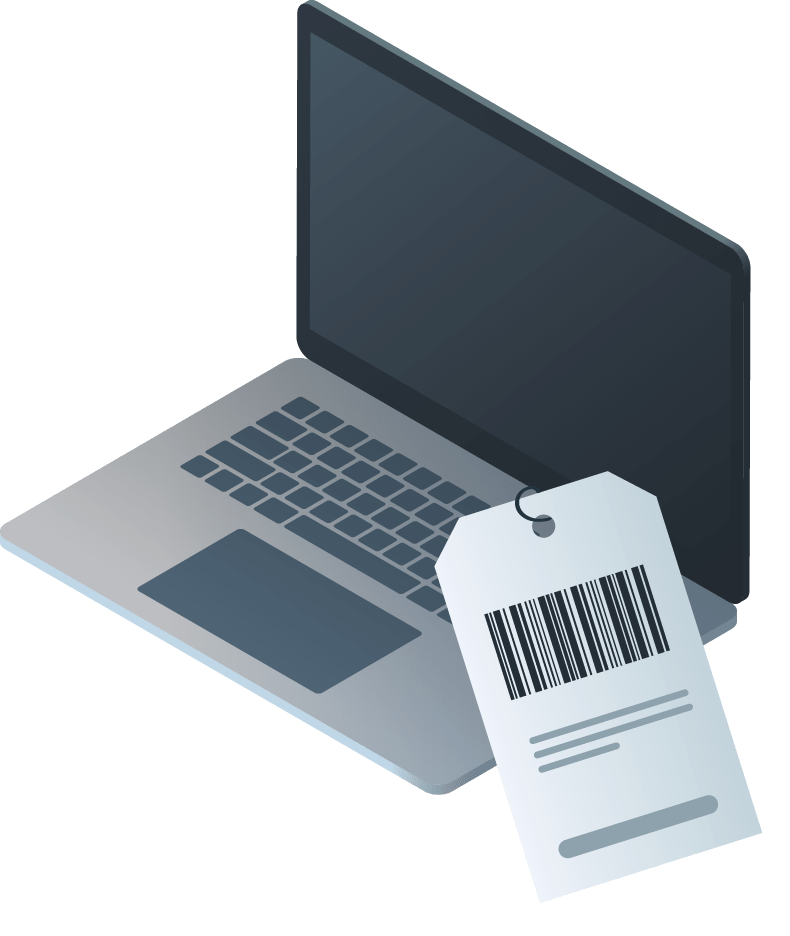
Average cost of IT Equipment in the UAE
Laptops (Business Grade):
- Mid-range: $945 – $2,025 USD
- High-end: $2,025 – $5,940+ USD
High-end models such as Apple MacBook Pro, Dell XPS, and Lenovo ThinkPad are priced on the higher end.
Monitors (Business Grade):
- Standard: $295 – $810 USD
- Ultrawide/4K: $945 – $1,970+ USD
Monitors from trusted brands like Dell, Samsung, and LG typically range within these prices, with 4K or ultrawide models costing more.
Desktops (Business Grade):
- Standard Desktop PC: $785 – $2,970 USD
- Workstation Desktop (for high-performance tasks): $2,970 – $9,910+ USD
Prices depend on the brand and specifications, with options from HP, Lenovo, and Apple among the most common.
Printers (Laser):
- Standard Office Printers: $190 – $675 USD
- High-Volume Printers: $1,000 – $4,455+ USD
Leading brands such as HP, Canon, and Brother offer a wide range of models for office environments.
Public holidays & IT work hours to plan your shipment
Key public holidays in the UAE:
- New Year’s Day – Monday, January 1
- Eid Al Fitr (Hari Raya Puasa) – Varies (Expected around April/May, 2–3 days closure)
- Arafat Day – Varies (1 day before Eid Al Adha, usually June/July)
- Eid Al Adha – Varies (Expected around June/July, 2–3 days closure)
- Islamic New Year – Varies (Expected around July)
- Prophet Muhammad’s Birthday – Varies (Expected around September)
- Commemoration Day – Monday, December 1
- UAE National Day – Tuesday–Wednesday, December 2–3
Typical work hours for IT professionals
- Standard week: IT roles run Sun–Thu, 9 AM–6 PM (40–48 hrs/week). Flex hours and staggered shifts are increasingly common.
- Remote work: Remote/hybrid setups are widely adopted, supported by labor laws. Boosts retention and work-life balance.
- Overtime pay: OT = 1.25x (normal days), 1.5x (Fridays/holidays). Managers may be excluded—compensation depends on company policy.
- Public holidays: Most IT firms close. If working, employees get extra pay or a day off, per UAE labor law and contracts.
What to consider when retrieving IT equipment from employees in the UAE
| Local delivery and logistics services |
|
| Inventory management |
|
| Logistics challenges for remote locations |
|
| Equipment agreement with employees |
|
How to dispose of IT equipment in the UAE
E-Waste Recycling:
- Certified e-waste handlers: To comply with the UAE’s environmental regulations, partner with licensed e-waste disposal companies that follow the country’s established rules. These certified providers have the expertise to responsibly dismantle electronic devices, handle hazardous components like circuit boards and batteries, and ensure that all materials are processed in line with sustainability laws.
- Drop-off recycling centers: For small, consumer-grade electronics, such as mobile phones and laptops, the UAE has numerous e-waste recycling points and bins that offer easy and secure disposal options. However, for more complex equipment like servers, storage systems, and data centers, professional recycling services should be engaged to ensure that these items are properly processed and disposed of in compliance with legal requirements.
Data Destruction:
- Wipe data completely: Before any device is disposed of, it’s crucial to ensure that all data stored on devices such as hard drives, SSDs, and mobile phones is completely erased. Use certified software tools that meet standards like NIST 800-88 or ISO 27001 for secure data erasure. This process is essential to safeguard against data breaches and align with the UAE’s stringent data protection laws, such as the Personal Data Protection Law (PDPL).
- Physical destruction: For the utmost security, physical destruction of data-carrying devices is the most effective way to prevent data recovery. Methods such as shredding, crushing, or degaussing will make the data irretrievable. This is particularly important for industries like finance, healthcare, and government, where protecting sensitive information is critical.
Repurposing or Donating:
- Support education & communities: If your equipment is still in good working condition, consider donating it to schools, non-governmental organizations (NGOs), or other charitable groups in the UAE. This not only helps reduce e-waste but also promotes digital inclusion by providing resources to communities that might not otherwise have access to technology.
- Internal reuse: For businesses that routinely upgrade their IT infrastructure, repurposing older equipment for internal use can be an excellent option. Devices that are still operational can be reassigned to departments with lower performance requirements, thus extending their lifespan and helping to reduce unnecessary waste.
Manufacturer Recycling Programs
- Brands like Dell, HP, and Apple offer take-back programs for safe recycling or refurbishment. These programs ensure that old or used IT equipment does not end up in landfills, helping to reduce environmental impact. Many manufacturers provide incentives, such as discounts on new devices, for customers who return old equipment for proper disposal.
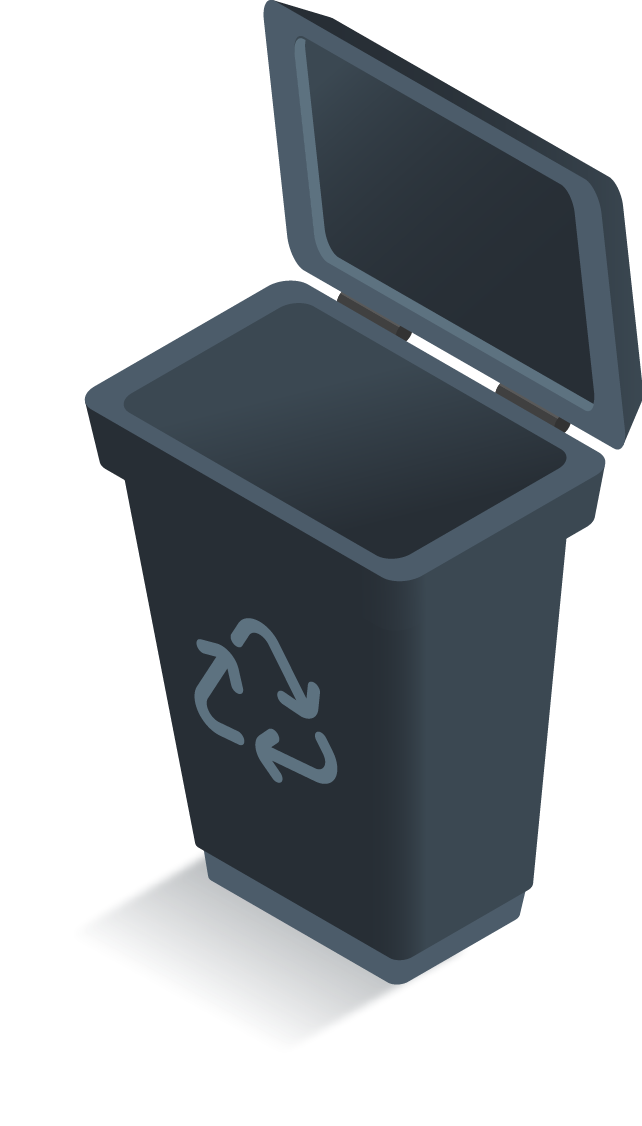
Local IT Outsourcing Solutions in the UAE
You can streamline your IT logistics and asset management with GroWrk’s comprehensive global solution. Whether it’s shipping equipment or managing IT assets across multiple regions, GroWrk helps you stay compliant and efficient, every step of the way. Here’s why GroWrk is the ideal partner for managing your IT assets in the UAE:

| 1. Wide global coverage |
From procurement to disposal, we manage the entire lifecycle of your IT assets. With our comprehensive logistics and infrastructure support, your business can stay focused on its core operations while we take care of all aspects of your IT equipment management. |
| 2. End-to-end asset management |
From sourcing to retirement, we oversee the full lifecycle of your IT equipment. Our holistic approach means we handle everything—device procurement, configuration, delivery, collection, and environmentally responsible disposal—so your team can stay focused on mission-critical tasks. |
| 3. Intuitive platform for easy deployment |
We ensure that IT devices, including laptops, are efficiently delivered to employees across the UAE. Additionally, our services handle the swift retrieval of equipment when employees leave, ensuring a smooth process and helping your business maintain cost-effective asset management. |
| 4. Smooth delivery and equipment retrieval |
We ensure that IT devices reach employees quickly and securely wherever they’re based. When devices need to be returned, due to offboarding or upgrades, we manage the retrieval process efficiently to avoid loss and maintain operational continuity. |
| 5. Compliance with UAE import regulations |
We make certain that all shipments comply with the UAE’s import laws, customs processes, and tax obligations. From managing VAT to navigating customs duties and ensuring regulatory compliance, we ensure your IT equipment arrives on schedule without complications. |
| 6. Efficient repairs and maintenance |
Our responsive maintenance services ensure your devices stay functional and up to date. We address hardware or software issues promptly to reduce downtime, allowing your business to operate without disruption. |
| 7. 24/7 Support for peace of mind |
Our customer support team is available around the clock to assist with any inquiries related to asset management, logistics, or equipment deliveries. Whether it's day or night, we’re committed to ensuring that your IT operations continue to run smoothly and efficiently across the UAE. |
Procure, configure, and deploy your IT devices from one platform


